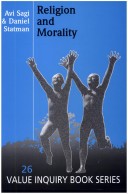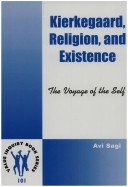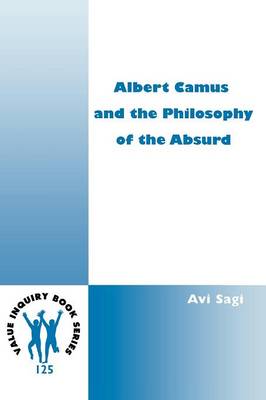Value Inquiry Book
4 primary works
Book 26
Religion and Morality seeks to answer two fundamental questions regarding the relation between religion and morality. The first is the puzzle posed by Socrates, the so-called 'Euthyphro dilemma', which asks: is morality valuable by virtue of its intrinsic importance and worth, or is morality valuable because, and only because, God approves it and commands us to follow its dictates? The second question is raised by Kierkegaard in Fear and Trembling. He asks: Is a conflict between religion and morality possible? Does God ever demand that we neglect our moral commitments? The discussion on these questions is divided into three parts. In the first two parts, we discuss the idea that morality depends on religion. The authors distinguish two types of dependence: strong dependence, according to which the very existence, or validity, of moral obligations depends on God's command, and weak dependence, according to which though morality itself is independent of God, God (or belief in God) is necessary to enable human beings to know their moral duties and to carry them out. The authors reject the strong dependence thesis, as well as most versions of the weak dependence. The third part of the book discusses different versions of the view that religion might conflict with morality. The authors reject this view, and show that very few religious thinkers would follow it all the way through to its ultimate consequences. The book has implications for the philosophy of religion, in its emphasis on the centrality of the moral element in religion, and for moral philosophy, in its highlighting, among other things, of the nature of moral judgments.
Book 32
Moral dilemmas set a challenge for ethical theory. They are situations where agents seem to be under an obligation both to do, and to refrain from doing, a specific act. Are such situations possible? What is their exact nature? These are the questions that Moral Dilemmas tries to answer. The book argues that moral theories should not allow for the possibility of irresolvable dilemmas, for situations in which no right answer exists. To this end, arguments seeking to prove the existence of irresolvable dilemmas, especially the argument from the incommensurability of values, are discussed at length and refuted. The book shows that though on the normative level dilemmas are resolved, they typically involve a high moral cost for which there is no adequate compensation. This moral cost is the source of the regret and pain suffered by agents in moral dilemmas. Thus, moral dilemmas do not point to any inconsistency in our moral reasoning or theory, but to a problematic aspect of the human condition; at times (probably less often than is usually believed), human beings are justified, and even required, to dirty their hands by behaving in ways that in ordinary situations would be strictly forbidden and condemned.
Book 101
This book is an original philosophic exploration of the meaning of Kierkegaard's life, his thought, and his works. It makes a bold case for Kierkegaard's recognition of the concrete existence of the individual, including Kierkegaard himself, as crucial to the spiritual life. Written with delicate insight, and beautifully translated from Hebrew, this work offers valuable new turns to understanding the puzzling life-work of a modern giant of spiritual reflection.
Book 125
This book is an attempt to read the totality of Camus’s oeuvre as a voyage, in which Camus approaches the fundamental questions of human existence: What is the meaning of life? Can ultimate values be grounded without metaphysical presuppositions? Can the pain of the other penetrate the thick shield of human narcissism and self-interest? Solipsism and solidarity are among the destinations Camus reaches in the course of this journey. This book is a new reading of one of the towering humanists of the twentieth century, and sheds new light on his spiritual world.



